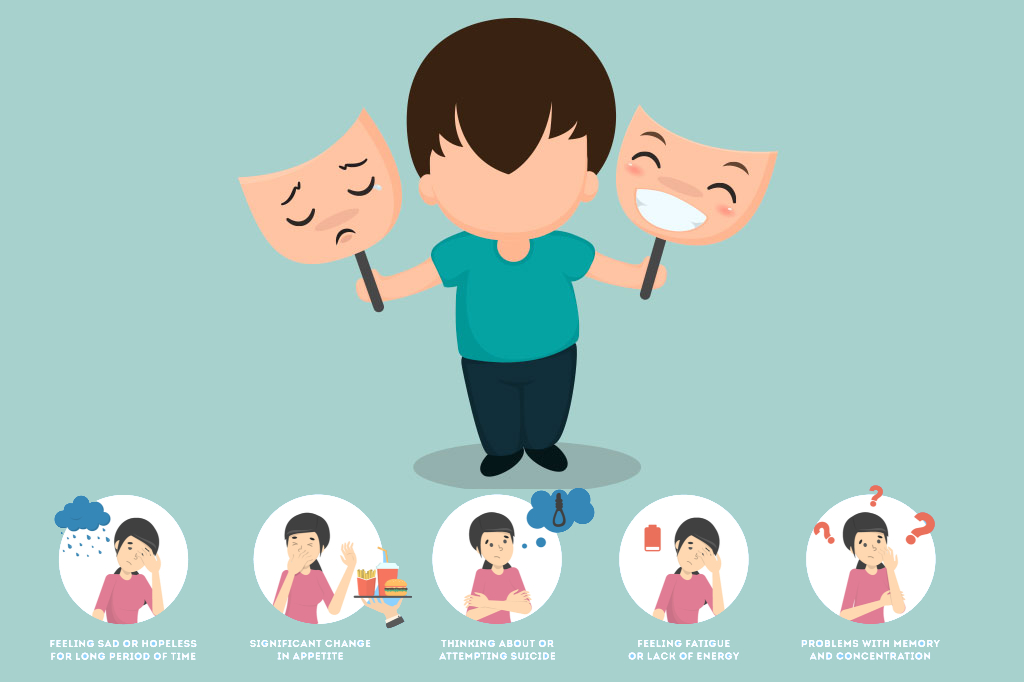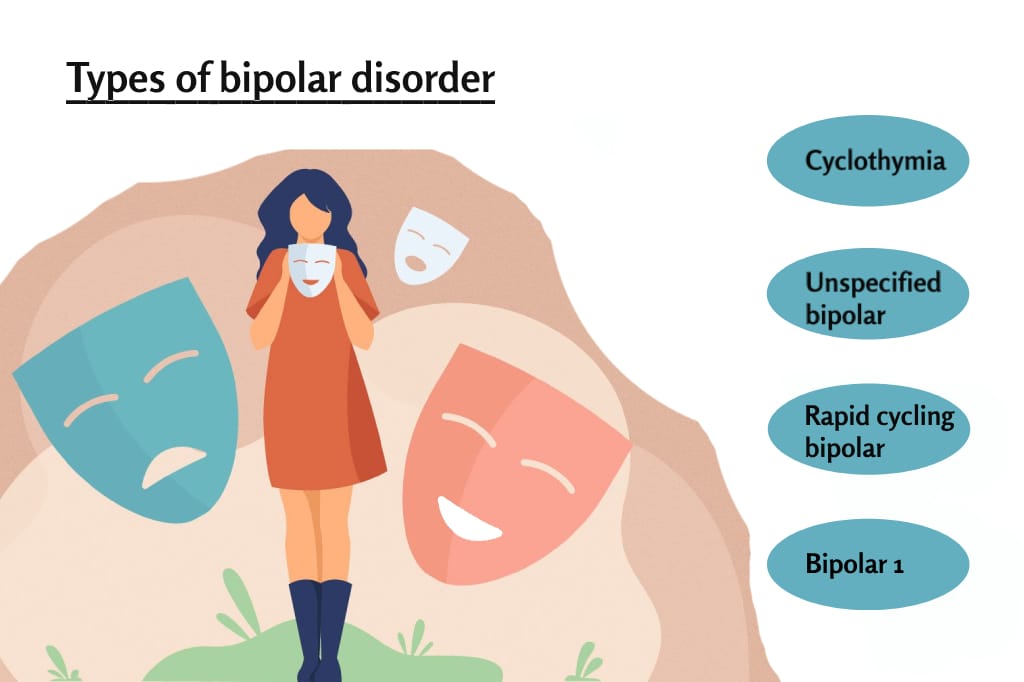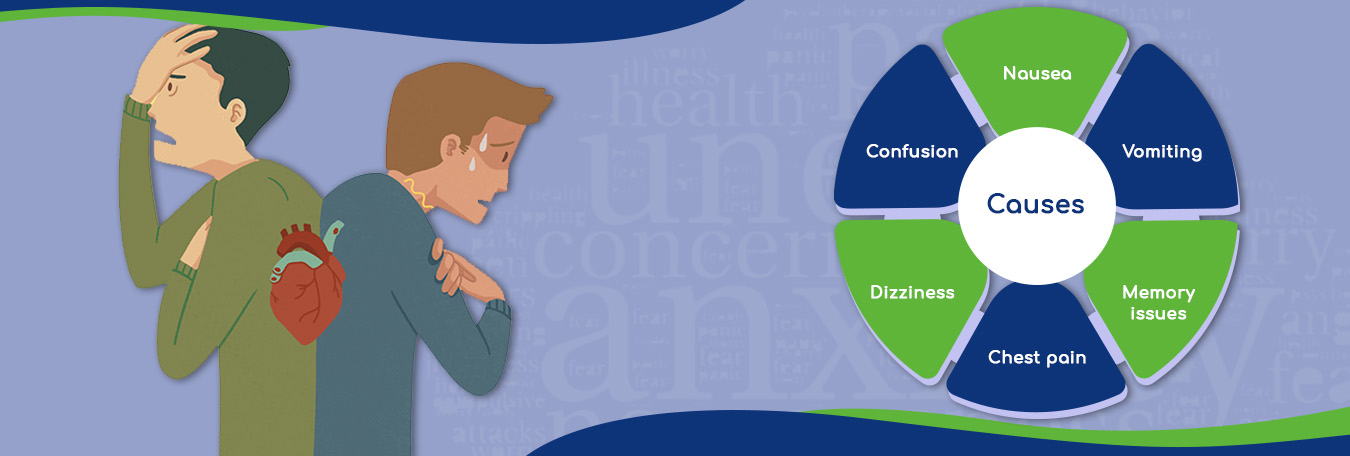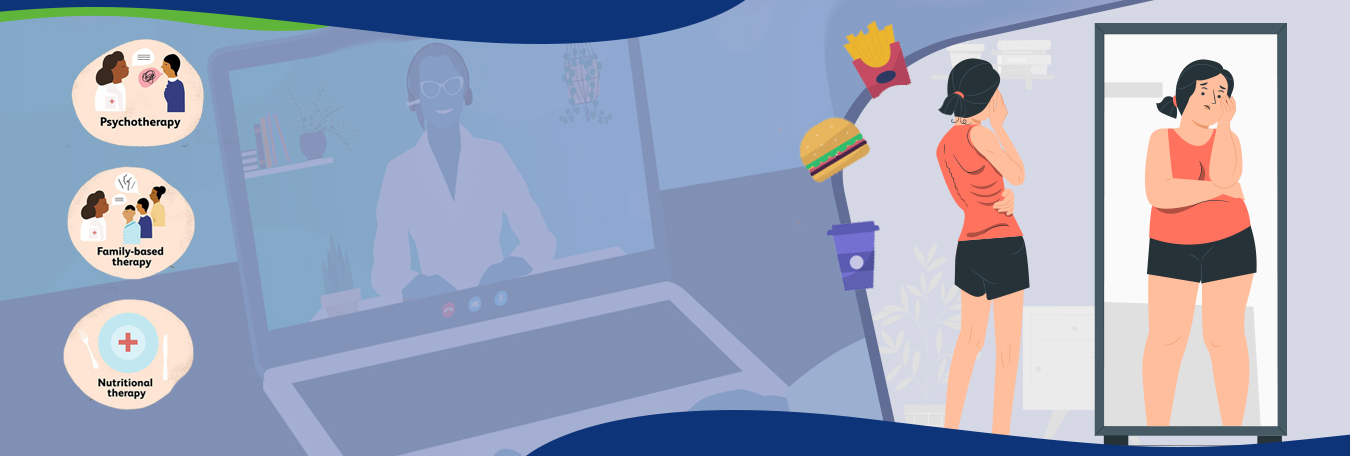Have you ever experienced sudden mood swings with uncontrolled intensities? Then you might be suffering from bipolar disorder which is one of the complex neurocognitive disorders. This disorder affects both men and women. However, children are mostly affected by this cognitive disorder. Irritability, anger, hypersensitivity, and hyperactivity are the typical symptoms of this disorder. Moreover, if you want to know more about bipolar disorder in children, then this article will be advantageous for you. Furthermore, you will also get familiar with the impact of bipolar in kids as well as the signs of bipolar in kids. So don’t strive more and pause your search that can kids be bipolar or not. At Inland Empire Behavioral Group, you will not only get detailed information but can also acquire the best treatment for this disorder.
What is bipolar in kids?
Bipolar disorder is a common mental illness that mostly affects children. Affected children face difficulty in spending a normal life. Individuals affected by this disorder experience sudden shifts in their moods. Moreover, bipolar disorder in children can also reduce their energy levels which adversely affects their overall health. Their thinking patterns get altered which can divert their mind towards anxiousness. They face major obstacles in carrying out their essential day-to-day tasks. Although, children are mostly affected by this disorder. Bipolar kids fail to achieve excellence in both academic and personal life aspects. However, the condition is diagnosed more in adulthood stages.
Furthermore, bipolar disorder in children is also referred to as manic disorder due to recurrent episodes of mood swings that result from emotional highs. If the episodes are left untreated, then it can result the chronic depression. Most of the adults suffering from bipolar disorder also experience severe depression symptoms.
Not every child does not have to suffer from bipolar disorder. However, if the children are showing aggressive or hostile behavior, then it does not mean that they are suffering from the symptoms of bipolar disorder. Moreover, hyperactive or impulsive behavior is not a sign of a mental health problem if occurs normally and after a long period. Furthermore, if your child exhibits irritability or aggression most often and symptoms are elevating progressively, then you should think about it. There is a greater possibility that the bipolar child is having any mental health issues. Your child may be suffering from anxiety, depression, or any other mental illness.
Read More: Can anxiety cause nausea? What’s their association?

What are the major signs of bipolar in kids?
Children are more likely to experience the below-mentioned symptoms of bipolar disorder which include:
- Extreme excitement or pleasure
- Most often mood swings
- Extra naughty behavior
- Talkative
- Excessive body movements
- Impatient behavior
- Restless or unconsciousness
- Disobedient to teachers or parents
- Overly active
- Excessive thoughts about risky activities
- The extra desire for sex
- Trouble in concentration
- Difficulty in sleep-wake cycles
Furthermore, during the depressive episodes of bipolar disorder, the following signs of bipolar in young children are common:
- Frequent crying
- Extreme sensitive behavior
- Poor academic performance
- Difficulty in making bonds with loved ones
- Preference for isolation
- Fatigue
- Tiredness
- Self-criticizing
- Lack of passion or interest
- The most common intrusive thoughts
- Overeating or reduced eating patterns
- Suicidal thoughts
- Headache
- Body ache
- Gastrointestinal issues
Signs of Bipolar in toddlers
Moreover, various factors can clearly distinguish the signs of bipolar in teens from signs of bipolar in kids.
First, the major difference lies in the duration of mood episodes. The extent and duration of children’s mood episodes is greater as compared to adults. Secondly, in children, mixed episodes of mania and depression are more common. Similarly, physical conditions are more common in children as compared to adolescents. Furthermore, children are more likely to suffer from different comorbid conditions in the presence of bipolar disorder symptoms. Adults can better cope with bipolar disorder symptoms as compared to children. The symptoms of bipolar disorder in children can go from mild to severe symptoms.
However, there is no specific cure for bipolar disorder. Furthermore, with effective treatment strategies, symptoms of bipolar disorder can be diminished to a great extent. In this way, children can have a healthy life and can effectively participate in productive life activities.
Diagnosis of bipolar disorder in children
In addition, mental health experts utilize different ways to effectively diagnose bipolar disorder in children which include:
Physical evaluation tests
Experts perform different physical evaluation tests that can evaluate the symptoms of bipolar disorder. Moreover, any other medical condition that occurs along with bipolar disorder in children can also be analyzed.
Psychiatric assessment
Mental health experts also conduct different psychological evaluation tests in which different questions are asked of the patients. Most of the questions are related to emotions, thoughts as well and behavior. Moreover, they are also asked about their previous life traumas. In most of the cases, patients are also asked to fill out different questionnaires instead of verbal tests. Furthermore, previous life history is also determined.
What are the causes of bipolar disorder in children?
The exact cause of bipolar disorder in children is still not known. However, there are some common causes of bipolar disorder which are as follows:
Chemical imbalances
The brain can perform its function optimally if the level of neurotransmitters is maintained. However, certain chemical imbalances in the brain can cause the onset of bipolar disorder symptoms. Moreover, dopamine, serotonin, and noradrenaline are the major hormones that regulate brain activity. If the level of these neurotransmitters gets altered, various mental issues occur such as bipolar disorder. Furthermore, different studies have reported that if there is an imbalance in any one of these hormones, a person can suffer from bipolar disorder.
Genetics
Primarily, various recent studies also supported the fact that bipolar disorder tends to run in families. Therefore, children can suffer easily if any of the parents are affected by this disorder. Moreover, a single gene is not involved in bipolar disorder. Different alterations in genetic makeup can lead to the occurrence of bipolar disorder in children.
Environmental stressors
Researchers also believe that children are more prone to bipolar disorder as they are surrounded by numerous environmental stress factors. Moreover, if a child is living in a harsh domestic environment where the parents use abusive language, then they are more likely to get mental illness. Furthermore, other environmental factors include the abuse of drugs, excessive alcohol consumption, or a toxic community. However, children don’t always get bipolar disorder. Due to external stressors, they can also acquire ADHD, schizophrenia, mood disorders, personality disorders, obsessive-compulsive disorder, and many more.
Environmental triggers of bipolar episodes
If the child or any adult is already suffering from bipolar disorder, then environmental factors can trigger the episodes of bipolar disorder in children. For example, the abusive language and aggression of parents or teachers are one of the major trigger factors of bipolar disorder. Moreover, the toxic environment of school or college can also cause the onset of bipolar disorder symptoms.
Other environmental factors include
- Loss of loved ones
- Emotional trauma
- Childhood trauma
- Sexual abuse
- Death of a loved one
- Financial loss
- Previous medical history

Types of Bipolar Disorder
There are different types of bipolar disorder in children that exhibit different intensities of manic episodes. However, some conditions are mild while some, on the other hand, exhibit severe symptoms.
Bipolar disorder I
Among other types, bipolar disorder I exhibit more severe symptoms. Moreover, a person suffering from bipolar disorder usually experiences at least one manic episode in their lifetime. If the bipolar disorder I symptoms are left untreated, there is a greater probability of suffering from type II. According to some research, bipolar disorder I is considered more dangerous as compared to type II.
Bipolar disorder II
Persons with bipolar disorder II experience more severe symptoms of depression. Moreover, the extent of bipolar disorder symptoms II is also greater as compared to type I.
Cyclothymia
It is also a complex mental or mood disorder. Moreover, this condition also involves the intensity of mood swings but their extent is less as compared to bipolar disorder.
Overlapping of bipolar disorder in children
There are various symptoms of bipolar disorder in children which overlap with other mental health conditions symptoms. Therefore, it is very difficult to effectively diagnose the actual symptoms of bipolar disorder. Most of the therapists consider it a very challenging. Both bipolar disorder and schizophrenia have various similarities and differences.
Moreover, a person suffering from bipolar disorder experiences a sudden intensity in mood swings as well as energy levels. While on the other hand, persons with schizophrenia experience a loss of contact with reality. In addition, they remain indulged in their hallucinating thoughts. Furthermore, they think that all the things that are happening in their thoughts or dreams are actual. Likewise, they don’t feel pleasure in believing in reality.
Similarly, bipolar disorder in children involves manic episodes and some stages of depression. However, schizophrenic disorder does not involve manic episodes. It only involves the occurrence of psychotic symptoms along with hallucinations and delusions.
Furthermore, there is also a possibility that a person suffers from both schizophrenia and bipolar disorder at the same time. This scenario makes it difficult to individually diagnose both conditions.
The relationship between ADHD and bipolar disorder
If both ADHD and bipolar disorder occur together, then they are considered as the comorbid condition. Both are complex mental disorders and can affect individuals at the same time. However, there is a reduced chance of their combined occurrence.
In addition, there are various symptoms of ADHD and bipolar disorder which are overlap. Hypersensitivity and hyperactivity are the major symptoms that show quite a resemblance. Moreover, the symptoms of ADHD are more consistent as compared to the bipolar disorder symptom.
The prevalence of bipolar disorder in children is higher as compared to ADHD. Furthermore, researchers are also unaware of why both ADHD and bipolar disorder occur together. While some believe that few genetic factors are responsible for their combined onset.
How to manage bipolar disorder in children?
In addition, different strategies are used to treat or manage the symptoms of bipolar disorder in children and adults which include medication management and psychotherapy.
The following medicines are recommended by mental health experts which include:
Mood stabilizers
Certain medicines can stabilize the mood. Moreover, they are effective in regulating the manic episodes of bipolar disorder in children. The most common mood stabilizers include:
- Tegretol
- Depakote
- Equetro
- Lamictal
Antipsychotics
Antipsychotics are specialized medicines that can treat psychotic conditions of bipolar disorder in children. The most common antipsychotics include:
- Quetiapine
- Clozapine
- Asenapine
- Ziprasidone
- Aripiprazole
- Olanzapine
- Quetiapine
- Lumateperone
Read More: ADHD in women: Symptoms, Causes & Treatment
Other treatment therapies
Other than medicines, different treatments are recommended which are as follows:
Cognitive behavioral therapy
This talk therapy is considered highly effective for managing the symptoms of bipolar disorder in children. There are two different modes of cognitive behavioral therapy which include individual therapy and group therapy. Moreover, talk therapists communicate with the patients and ask certain questions to know about their mental condition. Therapists can perfectly identify their thinking patterns and teach the finest ways of behavioral modification.
Dialectical Behavior Therapy
Persons with bipolar disorder face extreme indulgence in emotions. Therefore, this therapy is utilized to balance their emotional state. Moreover, this therapy also guides the patients that accept the challenges and alter their minds accordingly.
Family-focused therapy
This therapy involves the presence of bipolar disorder patients and their family members. The number of therapy sessions involved in this therapy is 12 to 15. However, the number of sessions can be increased based on the person’s condition. Initial therapy sessions involve education about bipolar disorder. In addition, patients are guided about the condition and symptoms of this disorder. Moreover, patients also learn how to cope with bipolar disorder and the resulting depression symptoms.
Interpersonal therapy
This therapy is extremely significant in improving the symptoms of bipolar disorder in children. Your children can learn how to develop a strong bond with friends and family. Furthermore, therapists specifically work on the child’s mood and make efforts to improve their linked biological as well as social rhythms. Affected children are unable to engage in their social activities. Therefore, interpersonal therapy teaches them how to contribute to society effectively.
Chromotherapy
Children or adults suffering from bipolar disorder are unable to follow a healthy sleep routine. Due to their persistent depression, they are unable to sleep and wake up early. Moreover, mental health therapists guide them that which time is feasible for their sleep. Ultimately, when they get adequate sleep, their productivity in each aspect of life is increased.
Parental strategies
If you are a parent of a child who is suffering from bipolar disorder, then you should employ some useful strategies to help your child in overcoming the situation.
Admire your child
In addition, children always need support and love. Show some love and concern towards your child. Make a habit to admire them and give them rewards for their positive behaviors. Moreover, let them know that you care for them and they are important to you. Furthermore, take some time and sit with them so they can share their feelings with you.
Lifestyle alterations
Your diet also plays an important role in maintaining your brain health. Certain food products can help you to fight the symptoms of bipolar disorder.
The most common food products that can help with bipolar disorder in children are as follows:
Probiotics
Bipolar disorder involves the inflammation in certain brain regions. If you are facing the same situation, then you should use the probiotics in your diet to prevent inflammation. Moreover, probiotics are not specialized food products but they are the microorganisms that reside in the gut of living organisms. Furthermore, they target the inflammatory regions of the brain and release different anti-inflammatory chemicals that can assist in overcoming the inflammatory situation.
Fruits and vegetables
Make a habit of adding fresh fruits and vegetables to your diet. If you are not aware of the effective quantity of fruits and vegetables, then you can also consult nutrition experts. Moreover, all green leafy vegetables can reduce the symptoms of bipolar disorder and the associated depression.
Vitamin C-rich foods
In addition, vitamin C is also considered effective for treating the symptoms of bipolar disorder in children. Furthermore, vitamin C can detox the body as it destroys the harmful free radicals in your body. You can take some major sources of vitamin C in your diet which include:
- Lemons
- Citrus fruits
- Broccoli
- Strawberries
- Black currants
- Kale
Omega 3 fatty acids
Fish meat is considered the best source of healthy nutrients. Moreover, fish oil is recommended by various health experts to prevent numerous mental issues such as bipolar disorder. Furthermore, fish oil is enriched with omega-3 fatty acids which can prevent major health issues. Omega 3 fatty acids can also prevent cardiac disorders. Moreover, omega-3 fatty acids are also effective in preventing bipolar disorder symptoms. Similarly, the concentration of omega-3 fatty acids varies in different fishes. The major concentration of omega-3 fatty acids is present in mackerel, sardines as well as salmon.
How does the Inland Empire Behavioral Group treat bipolar disorder?
At Inland Empire Behavioral Group, you can approach highly professional and competent therapists who are always at the forefront of providing the finest mental health care. In addition, you can get benefits from reliable treatment therapies for bipolar disorder in children. Our mental health experts have helped thousands of individuals who are suffering from varied mental health conditions such as bipolar disorder. Inland Empire Behavioral Group is one of the largest mental health providers with a renowned team of mental health experts who are always ready to empower your mental well-being.
Moreover, you can acquire the finest therapies for anxiety, depression, obsessive-compulsive disorder, schizophrenia, ADHD, and many more. However, if you are specifically looking for reliable mental health services to treat bipolar disorder in children, then Inland should be your ideal choice. Similarly, you can get personalized treatment for you, your child, and your family members. What you need to do is simply self-evaluate your disease symptoms and then reach out to our experts. Our approach to mental health care is evidence-based. Our mental health therapists do not directly initiate the therapeutic plan. First, they complete the diagnostic steps and then treat bipolar disorder in children. Furthermore, different cognitive therapies are used to treat or prevent bipolar disorder symptoms. So what are you waiting for? Reach out to our mental health experts and cherish your mental well-being.

